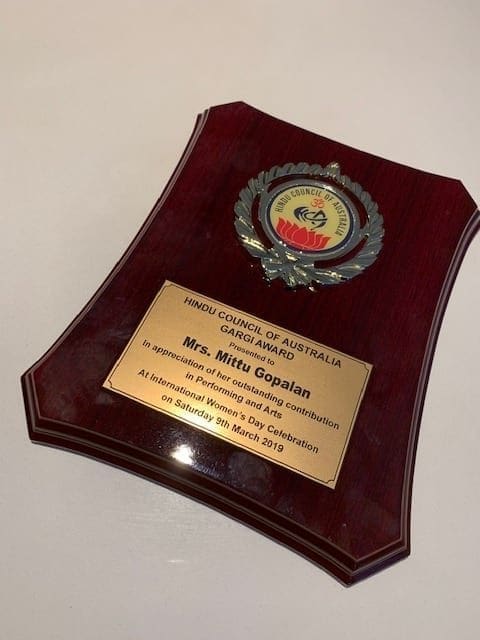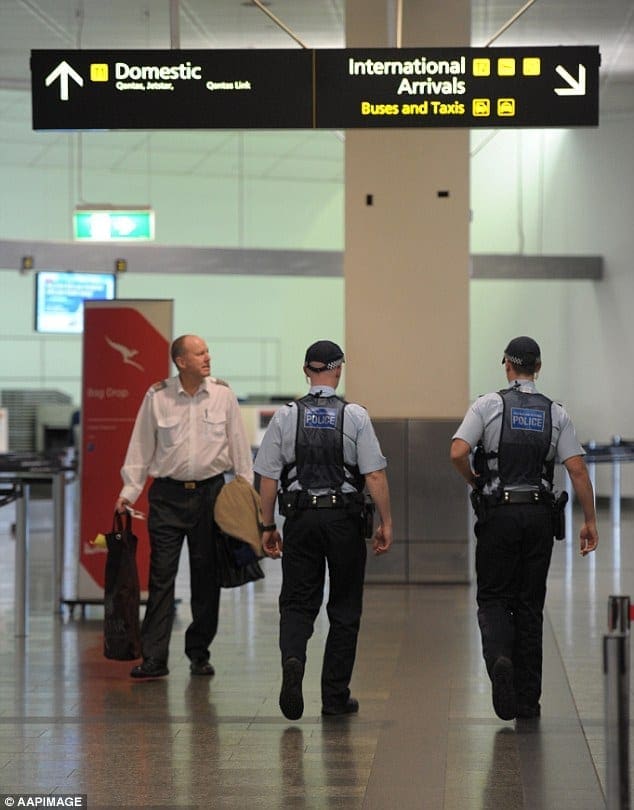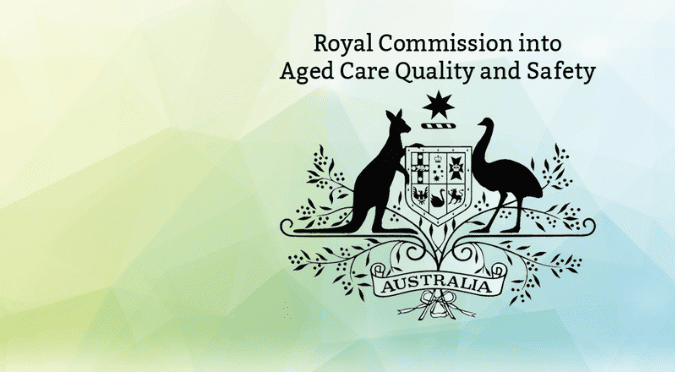 What is a De Facto Relationship?
What is a De Facto Relationship?
According to the Family Law Act 1975, a de facto relationship exists when two parties have been living together on a genuine domestic basis. A relationship is not a de facto relationship if, however, any of the parties is legally married to one another or if they are related by family.
Binding Financial Agreement
For individuals considering entering a serious de facto relationship, it is important to understand the implications of such an arrangement. It may be worthwhile to discuss any financial or relevant issues with your partner.
We would also highly recommend for you to consider arranging a formal Binding Financial Agreement (commonly known as a ‘pre-nup’). This will safeguard your assets in the event that the relationship breakdowns, and you will need to organise the assets accordingly. Our team can assist you in deciding whether a pre-nup is right for you and can help you prepare the documentation.
Property Settlement and Maintenance after the Relationship has broken down
In order to make a claim for property settlement or maintenance to be made with respect to a de facto relationship, the court considers the following: -
- That the period of the de facto relationship is at least 2 years;
- That there is a child of the de facto relationship;
- That the relationship is or was registered under a prescribed law of a State or Territory.
- That significant contributions were being made by one party and the failure to make an order would result in a serious injustice.
In the event that your de facto relationship breaks down, it is imperative that you understand your entitlements from the relationship.
Please do not hesitate to contact us to discuss your rights on 02 8917 8700 or fill out the enquiry box, and we will get back to you ASAP.
Separation is often a ‘catastrophic loss’ to either one or both parties. Adjusting to separation presents complications on many levels, such as self-esteem issues, financial security, friendships, loss of a family unit and the transition to living alone.
One party may be ‘blindsided’ by the separation when they find their partner/Wife/Husband has left a note on the kitchen bench stating that they have had enough of the marriage/relationship, left the family home to their parents and have also taken the kids.
Even parties who agree to amicably separate find it difficult to adjust to their new surroundings/environment, and emotions are fuelled when a party changes their position regarding the division of property despite both having agreed for ‘one to keep the house and pay the other out’.
Whilst many cases are settled outside of Court, stress and anxiety increases exponentially when parties are required to go to Court, especially matters involving children.
Emotions may fluctuate on a day-to-day basis or week-to-week basis. The thought of the family law proceedings weighing on one’s mind whilst they attempt to work or attend social outings affects the atmosphere and attitude of a person.
In the event that you do find yourself in this ‘pressure cooker’ environment, avoid substance abuse and reverting to alcohol to ‘ease’ the tension. Remember to focus on your psychological, emotional and physical well-being by seeking professional help with mental health professionals and doing physical exercise.
Whilst family lawyers make every attempt to make the separation process as smooth as a transition as possible and provide support in times of need, they are not trained counsellors/psychiatrists.
It is important to remember that stress is normal, but if you feel stressed and anxious all of the time, this may lead to depression and other mental health issues if not addressed.
Should this be the case, there a number of organisations that offer support and advice, including but not limited to:
Family Relationship Advice Line
If you have any queries in relation to the issues raised in this article, please do not hesitate to contact us on (02) 8999 9837, or fill out the enquiry box and we will get back to you ASAP.
Magistrate from Port Macquarie, Ms Dominique Burns, was referred to NSW Parliament after complaints were made regarding her conduct in separate cases between June 2016 and February 2017.
In making the complaint, lawyers from Legal Aid alleged that Ms Burns ‘misused her detention powers, denied procedural fairness, imposed sentences which exceeded the maximum penalty, and improperly encouraged police prosecutors to lay further charges’.
In January of this year, the NSW Parliament released a report of inquiry which substantiated the complaints. Click here to read the report.
In the report, Justice Anthony Payne from the Court of Appeal, Judge Roger Dive from the Drug Court, and former NSW Police commissioner Ken Moroney upheld 16 of the 17 complaints made against Ms Burns. Ms Burns was found to have engaged in “serious instances of misbehaviour”, and that her conduct “could justify parliamentary consideration of the removal of the judicial officer from office”.
The report also found Magistrate Burns’ practice of determining bail for appeals in her office instead of in an open court to be “a manifest denial of procedural fairness”. In giving evidence during the hearing, Magistrate Burns acknowledged her mistakes, however, justified her conduct as being the direct result of her “crushing workload”.
Ms Burns has been suspended from duty since June 2017 and is due to face Parliament in the next session.
This comes as a surprise to the community as only a handful of previous judicial officers have been referred to NSW Parliament thus far, and none have been successfully removed from the bar.
Nonetheless, this procedure is by far a good parameter in order to ensure that appropriate checks are placed on the judicial system, which a common person otherwise implicitly trusts.
The team at F&G will be following this story closely, so be sure to follow our Facebook page for the most recent updates!
If you are over the age of 18 and do not have a Will, please consider attending to preparing one as soon as possible. As you are aware, it must be a written document outlining your wishes in relation to how your assets should be distributed subsequent to your debt. The document should be witnessed by two independent witnesses and should also outline who your Executor/ Executors would be.
Of course, dealing with debt and managing the Estate of the people who we love are two things most of us hate to think about. However, it is imperative that you think about your options as to how it should be distributed after your debt so that all your hard-earned money and assets can in fact be left for your loved ones rather being taken by your Trustee or distributed according to the eligible persons applying for any interest in the Estate.
What more can a Will include apart from money and assets?
In this day in age, a Will should also include digital assets, frozen eggs and sperms, social media and pets.
The things to consider should also include your assets that you may have forgotten to include otherwise. For example, when it comes to Facebook, would you want your account closed or become memorandum after your passing? Do you have a Facebook business page that would need to be managed? Accordingly, the Legacy Contact is the person you can appoint in your Will and who can access your account and carry out your wishes in the event your death occurs.
Do you have a Paypal account, a Bitcoin balance, investments in Acorns or an Ebay store?
If any of these accounts are of value or holds money in them, then you need to stipulate what happens to those accounts including who will manage them and have access to them after your death.
If you are a photographer or a blogger, your writing or images can be part of intellectual property and as such, you will need to incorporate these properties into your Will.
Do you have pets?
If so, those fury mischief makers should be dealt with in your Will. Otherwise, pets of deceased persons may end up in rescue centers where they rely on the goodwill of strangers to provide them with a foster home.
Do you anticipate having children in the future?
If you are young and anticipate having children in the future, it would also be wise to have your eggs or sperms frozen so that in the unfortunate instance of your spouse or partner passing away, he or she then provides you access to that property in order for you to have children subsequent to that person passing away.
It is imperative that you consider your options before finalizing your Will. If you wish to amend your Will or reconsider your Will being redrafted, please do not hesitate to contact us on 02 8917 8700 or fill out the enquiry box, and we will get back to you ASAP.
We recently hosted a free legal workshop covering the areas of the law that affect us all in our daily lives. Topics included wills, family provision claims, family separation, cyber-bullying, domestic violence, children and welfare.
Dates:
- 15 March 2019: 12pm-4pm
- 16 March 2019: 9am-1pm
Location:
- The Connection, 30 Shoreline Drive, Rhodes (only 600 metres from Rhodes Station)
Share our Flyer with your family, friends and community.
Our Speakers
Sanjay Deshwal
Sanjay Deshwal heads up the Australian Visa & Migration Consultancy Services, which specialises in temporary and permanent residency visa applications onshore and offshore for Australia, New Zealand and Canada.
Since 1996, Sanjay has successfully assisted thousands of individuals and families to obtain permanent resident or temporary visas in Australia, New Zealand and Canada. Sanjay is an experienced professional who is always up to speed with the ever-changing immigration laws in Australia.
Dr Kiran Jassal
Dr Kiran Jassal is passionate about women’s health and family wellness. She has been working as a family GP for over 25 years after graduating from Sydney University.
In her practice, she has seen the need for women to look after their mental, emotional and physical well-being so as they are able to thrive in their intense daily lives.
In her career, she has had the opportunity to work with women and families from a range of different cultural backgrounds and is acutely aware of the challenges they face.
Kiran is a member of Lean In Inc, a not for profit association that is dedicated to the empowerment of new migrant women.
Deep Mitra
Deep is a Chartered Accountant from the Institute of Chartered Accountants in Australia & New Zealand. He is also a fellow Chartered Accountant (CA) and Cost & Management Accountant (ICWA) from India. He holds a practicing CISA designation from ISACA, USA.
Deep started his career with AF Ferguson in Mumbai before moving into financial consulting in Dubai specialising in market entry structuring. He spent his next 10 years in Sydney with the ING Group and with the National Australia Bank in SOX and in Financial Governance. In between, he did a 2 year secondment at ING Asia Pacific regional office in Hong Kong. Deep has extensive experience in structuring market entry into Australia, taxation, regulatory compliance and auditing.
Linda Lemon
Linda is a caseworker at the Lisa Harnum Foundation supporting and empowering families affected by domestic abuse. Lisa is also the Secretary of the Hills Domestic Violence Prevention Network.
Lisa was born in New Zealand and has lived in Australia for 37 years.
Linda has 17 years of working within non-government organisations (NGO’s), ranging from Special Homelessness Service, and in a non-government protection role in Western Sydney. It is through the differing roles within these services, Linda believes has contributed toward her becoming skilled, informed and has grown her as an individual and as a worker.
From this experience Linda has been able to gain significant insights into the coal face issues that are facing individuals accessing services. In addition, the challenges workers face as they seek to deliver services to their clients.
Linda is currently working with women and families experiencing and escaping domestic violence, through her role as The Lisa Harnum Foundation Caseworker. The Foundation focuses on walking the journey of love, hope and freedom, placing value, worth and purpose on the women and children impacted by the trauma and devastation of domestic violence.
Linda is passionate about building and linking other services within the Hills District as she holds a strong belief that services working together, in a holistic approach, can only benefit those who are seeking help.
The fate of Cardinal George Pell, following his recent conviction in December 2018, has been handed down on 13 March 2019.
Chief Justice Peter Kidd has sentenced Cardinal George Pell to six years imprisonment, after he was convicted of one count sexual penetration of a child under 16, as well as four counts of committing an indecent act with, or in the presence, of a child.
The sentence comes with a non-parole period of three years and eight months, and the cardinal will be registered as a sex offender for life.
In handing down the sentence, Kidd CJ condemned the abuse as “brazen” and “grave”. His Honour also noted that the abuse was an “explicit expression” of the cardinal’s authority over the children, further characterising the cardinal as “breathtakingly arrogant”.
His Honour found that a breach of trust had occurred, and that Cardinal George Pell had in fact used his position to facilitate the offending. By pleading ‘not guilty’ to the charges, His Honour surmised that there was no evidence of remorse or contrition.
Being the most senior Catholic cleric, the sentencing of Cardinal George Pell is of significant interest to those in Australia and across the globe. Kidd CJ correctly recognised the unique nature of this context, commenting, “It is George Pell whom is to be sentenced, not the entire Catholic religion or Church”.
Despite the sentence, Pell maintains his innocence and intends to appeal against his conviction on three grounds, including that the jury verdict was unreasonable.
The Court of Appeal will hear the appeal over two days in June.
The Hindu Council of Australia this weekend has announced that Mittu Gopalan is the Winner of Gargi Women Award 2019 - Performing Arts.
Mittu Gopalan finds time for her passions and pursues them, despite being a successful lawyer and managing a business.
Mittu also conducted a painting exhibition in November 2017, and has donated paintings to charity (see our blog post on that subject here).
Congratulations Mittu! We are extremely proud!
New legislation has been passed that prohibits foreigners who have been convicted of domestic violence from entering Australia. The Home Affairs Legislation Amendment (Miscellaneous Measures) Act 2019 has amended the Migration Act 1958 to focus on perpetrators of violence against women and children. Immigration Minister David Coleman said;
“Wherever the offence occurred, whatever the sentence, Australia will have no tolerance for domestic violence perpetrators.”
This legislation was passed as the previously existing laws only allowed the Government to revoke Visas of foreigners who failed a character test or who had spent 12 months in jail.
Though previously in 2015, singer Chris Brown was refused an Australian Visa for his planned concerts due to his 2009 conviction of assault and threatening to kill his then-girlfriend Rihanna, it was not common practice for the every-day person to be refused a Visa for Domestic Violence convictions.
However, we are pleased to note that this has now been written into the Migration Act to protect Australians and focus on reducing the number of Domestic Violence incidents in Australia.
If you have been affected by domestic violence, or have any queries in relation to the issues raised in this article, please do not hesitate to contact us on (02) 8917 8700, or fill out the enquiry box and we will get back to you ASAP.
Our free legal workshop on 15-16 March will cover domestic violence issues. Please consider coming along, and registering here - you can remain anonymous.
The first hearing of the Royal Commission into Aged Care Quality and Safety has revealed a myriad of problems suffered by both residents and staff in the sector. Many older Australians are afraid of going into residential aged care due to the lack of care. The Commission has revealed that there were 3,733 reportable assaults in nursing homes in 2017-18, not including residents assaulting each other.
The family of Bob Spriggs, a former resident of the Oakden nursing home in Adelaide (which has now closed down) has spoken out about the lack of transparency at the nursing home. Spriggs died due to suffering from overmedication, severe bruising, dehydration and pneumonia. The family is calling for a national database of abusive workers.
The lack of qualifications, adequate funding and under-staffing into the aged care sector is a systemic issue that must be targeted. With Australia’s ageing population, it is expected that the aged care workforce will need to triple by 2050 to cater for the growing demand. According to Deborah Parker, ageing policy chair of the Australian College of Nursing, the minimum requirement to work in a nursing home is a six-month TAFE course. With all the problems surrounding the sector, this does not seem to be enough. There is a need for more funding into wages and training
Under-staffing is another issue. Health Services Union national president Gerard Hayes has said that it is not uncommon for one worker to be looking after 25 residents simultaneously, many of which have different needs, from going to the bathroom to needing to be fed food. Dementia is on the rise with 436,000 Australians suffering from the incurable and untreatable disease today. 80% of dementia patients were being given a psychotropic drug that should only be used as a last resort because the drugs put senior patients at a greater risk of stroke, pneumonia, disability and even death. Dr Harry Nespolon of the Royal Australian College of Practitioners highlighted that around 90% of dementia patients have a behavioural issue, which can put staff and other residents at risk. Over-medication seems to be the easy way of for staff caring for dementia patients.
The next hearing will be on Mach 18 in Adelaide with a focus on home care.
Submissions from the public are being accepted until June 2019 at the Royal Commission's website.
If you or someone who know has been affected by the issues raised in this article, or have any queries relating to the issues featured here, please do not hesitate to contact us on 02 8917 8700 or fill out the enquiry box and we will get back to you ASAP.













